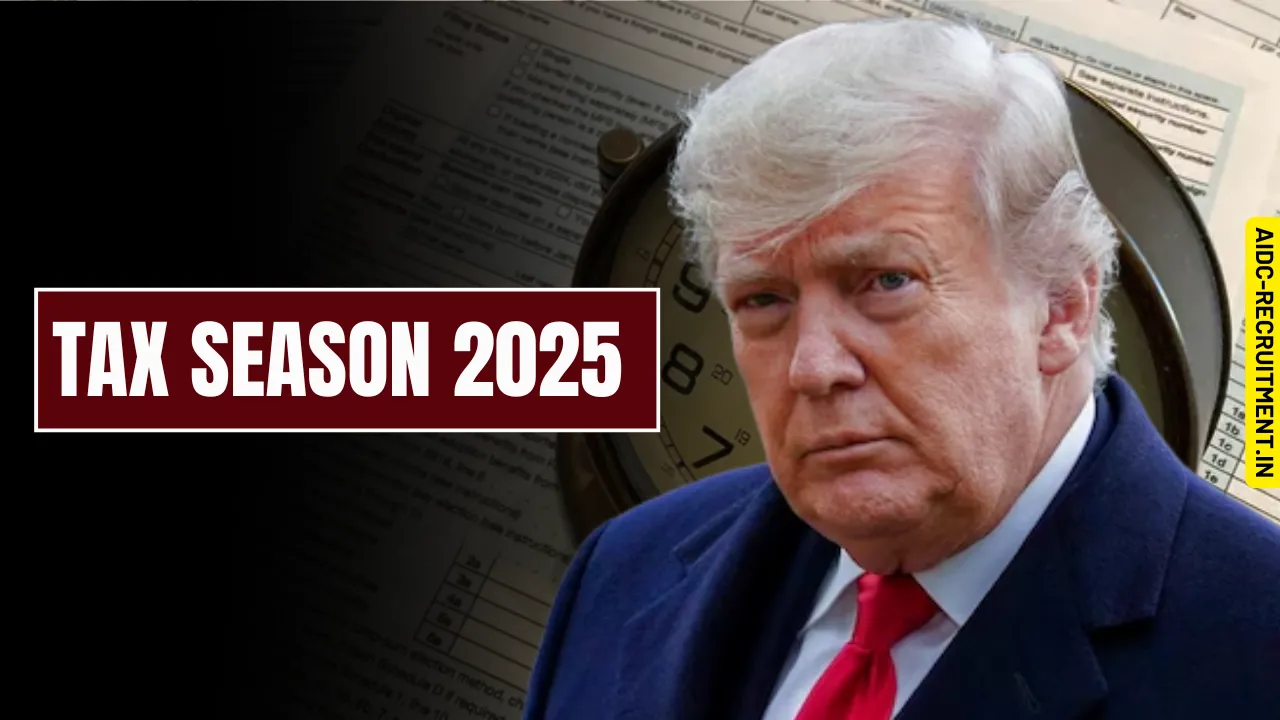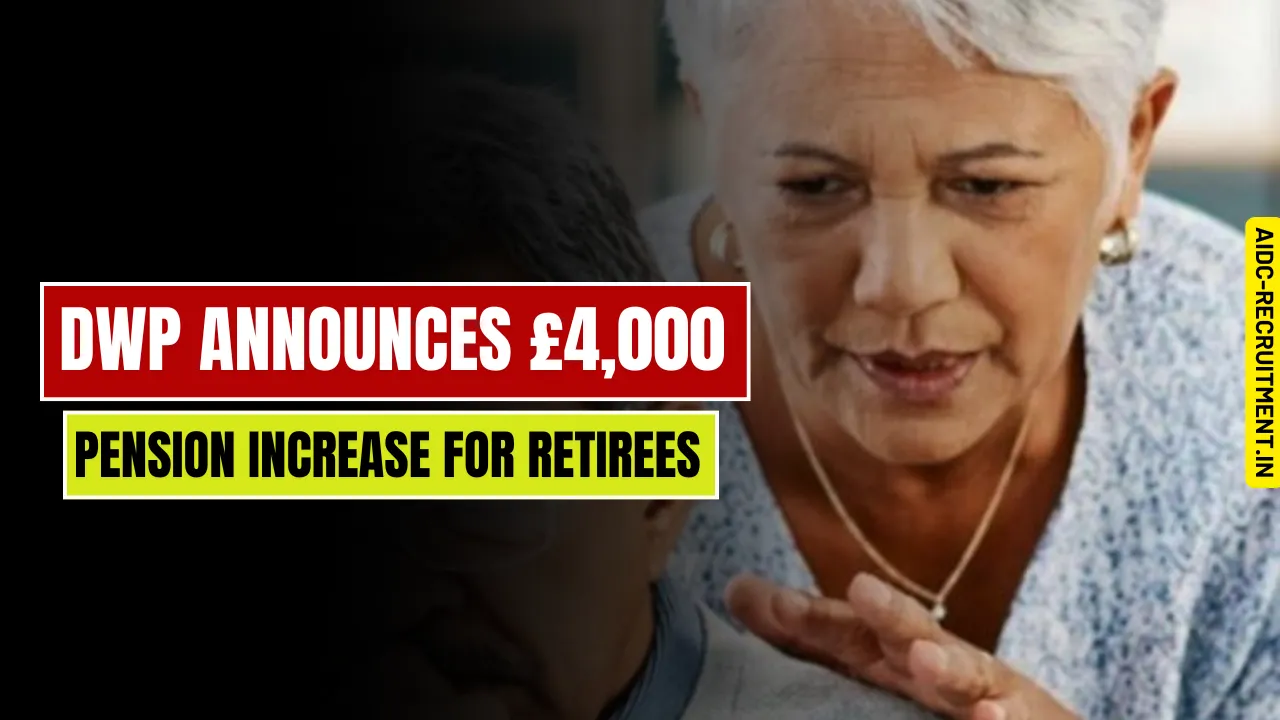Tax Season 2025: As Tax Season 2025 begins, millions of Americans are preparing to file their tax returns, but for U.S. citizens living abroad, the process often brings unique challenges and questions. One of the most important things to understand is that living outside the United States does not exempt American citizens from filing taxes. In fact, the U.S. is one of the few countries that taxes its citizens on their worldwide income, regardless of where they reside.
This article explains the key tax obligations for expatriates, covering filing requirements, foreign financial reporting, available benefits, and important deadlines. Whether you’ve recently moved overseas or have been living abroad for decades, here’s everything you need to know about filing your taxes this year.
Overview of Tax Season 2025 for U.S. Citizens Abroad
Here’s a quick summary of the essential details regarding tax filing requirements for expatriates in Tax Season 2025:
| Category | Details |
| Filing Requirement | U.S. citizens must file tax returns, regardless of residency |
| Type of Taxation | Citizenship-based taxation on worldwide income |
| FBAR Threshold | Required if foreign accounts exceed $10,000 |
| Foreign Earned Income Exclusion (FEIE) | Excludes up to $120,000 of foreign-earned income |
| Regular Filing Deadline | April 15, 2025 |
| Expat Automatic Extension | June 17, 2025 |
| Further Extension | October 15, 2025, with Form 4868 |
| IRS Amnesty Program | File the last three years of tax returns to catch up |
Do US Citizens Living Abroad Need to File Taxes?
The short answer is yes. Unlike most other countries, which tax income based on residency, the United States follows a citizenship-based taxation system. This means that if you are a U.S. citizen or resident alien, you are required to file a federal tax return and report your global income, even if you haven’t lived in the U.S. for years or earned any income domestically.
Why Does the US Tax Worldwide Income?
The U.S. tax system operates under the principle that citizenship carries certain responsibilities, including paying taxes, regardless of physical location. This unique approach ensures that all U.S. citizens contribute to federal funding, even if they live and work abroad.
What Happens If You Don’t File?
Failure to comply with these tax obligations can result in:
- Fines and Penalties: Late filings or non-compliance can lead to significant penalties.
- Accrued Interest: Interest will accumulate on unpaid taxes.
- Passport Restrictions: Non-compliance may result in the State Department limiting or revoking your passport in severe cases.
- Legal Ramifications: In rare cases, prolonged non-compliance can lead to criminal charges.
For those looking to permanently eliminate U.S. tax obligations, the only option is to renounce U.S. citizenship, a process that comes with its own legal and financial complexities.
Who Needs to File Taxes in Tax Season 2025?
Determining whether you need to file a tax return depends on your gross income and filing status.
Income Thresholds for Filing
If your gross income exceeds the standard deduction based on your filing status, you are required to file. Gross income includes:
- Wages and salaries earned abroad or in the U.S.
- Income from self-employment, property, or investments.
- Income exempt from taxation in foreign jurisdictions.
Reporting Foreign Financial Accounts (FBAR)
In addition to filing a federal tax return, U.S. citizens with foreign financial accounts must file a FinCEN 114 Report (FBAR) if the aggregate value of those accounts exceeds $10,000 at any point during the year.
What Is Considered a Foreign Financial Account?
This includes:
- Bank accounts held in foreign countries.
- Foreign investment accounts.
- Joint accounts held with a non-U.S. citizen.
Exceptions to FBAR Filing
- Accounts in U.S. military banking facilities are excluded.
- If the total balance of all foreign accounts remains below $10,000, FBAR filing is not required.
The Foreign Earned Income Exclusion (FEIE)
The Foreign Earned Income Exclusion (FEIE) is a valuable tax benefit for expatriates. For Tax Season 2025, eligible individuals can exclude up to $120,000 of foreign-earned income from their taxable U.S. income.
Eligibility for FEIE
To qualify, you must meet one of the following tests:
- Bona Fide Residence Test: You are a legal resident of a foreign country for an uninterrupted period that includes an entire tax year.
- Physical Presence Test: You are physically present in a foreign country for at least 330 full days in a 12-month period.
While the FEIE reduces taxable income, it does not exempt individuals from filing a tax return or reporting income that exceeds the exclusion limit.
Avoiding Double Taxation: Tax Treaties and Credits
One concern for expatriates is double taxation, where income is taxed both in the U.S. and in their country of residence. Fortunately, the U.S. has tax treaties with many countries to help mitigate this issue.
Tax Benefits for Expats
- Foreign Tax Credit (FTC):
You can claim a credit for income taxes paid to a foreign government, effectively reducing your U.S. tax liability. - Tax Treaties:
Tax treaties outline which country has the primary right to tax specific types of income, such as pensions, dividends, or wages. - Deductions for Housing Costs:
Expatriates can deduct certain housing expenses incurred while living abroad.
IRS Amnesty Program for Expats
For U.S. citizens who are behind on their tax filings, the IRS amnesty program offers an opportunity to get back on track without facing severe penalties.
How to Use the Amnesty Program
- File the last three years of overdue tax returns.
- Report foreign financial accounts for the last six years.
The program allows taxpayers to return to compliance while avoiding the most severe consequences of non-compliance.
Key Deadlines for Expat Tax Filing in 2025
Mark your calendar with these important deadlines for Tax Season 2025:
- Regular Filing Deadline: April 15, 2025.
- Automatic Extension for Expats: June 17, 2025 (due to June 15 falling on a weekend).
- Further Extensions: File Form 4868 for an extension until October 15, 2025.
Failing to meet these deadlines can result in penalties, so it’s crucial to plan ahead.
Tips for Filing Taxes as an Expat
Filing taxes from abroad can feel overwhelming, but these tips can help simplify the process:
1. Maintain Detailed Records
Keep accurate records of income, expenses, and foreign financial accounts to ensure compliance and maximize deductions.
2. Understand Tax Treaties
Familiarize yourself with the tax treaty between the U.S. and your country of residence to avoid double taxation.
3. Use Expat Tax Software
Expat-friendly tax software can simplify the process by accounting for international tax laws and reporting requirements.
4. Work with a Professional
Consider hiring a tax professional who specializes in expat taxation to ensure accuracy and compliance.
Consequences of Non-Compliance
Failing to comply with your tax obligations can result in:
- Fines and Penalties: Late filings can incur significant financial penalties.
- Interest Accrual: Unpaid taxes will continue to accrue interest over time.
- Legal Risks: Prolonged non-compliance may lead to passport restrictions or legal actions.
Conclusion
For U.S. citizens living abroad, Tax Season 2025 is a reminder of the unique responsibilities that come with citizenship. Even if you haven’t set foot in the U.S. for years, you are still required to file a tax return and report your worldwide income.
By understanding key benefits like the Foreign Earned Income Exclusion (FEIE) and taking advantage of tools like the IRS amnesty program, expatriates can navigate the tax filing process with confidence. Proper planning, accurate record-keeping, and professional guidance are essential for staying compliant while minimizing your tax liability.
While living abroad can complicate the process, fulfilling your tax obligations ensures peace of mind and avoids unnecessary penalties. Make this Tax Season 2025 the year you take control of your finances and stay compliant with U.S. tax laws.
FAQs
Do U.S. citizens living abroad have to file taxes?
Yes, U.S. citizens must file taxes on their worldwide income, regardless of residency.
What is the FBAR reporting threshold?
You must file an FBAR if the total value of your foreign financial accounts exceeds $10,000 at any time during the year.
Can I avoid double taxation?
Yes, using the Foreign Tax Credit and understanding tax treaties can help avoid double taxation.
What is the deadline for expat tax filing in 2025?
Expatriates have an automatic extension until June 17, 2025, with the option to extend further to October 15, 2025.
Can I catch up on missed filings?
Yes, the IRS amnesty program allows you to file the last three years of returns and report foreign financial accounts without severe penalties.












